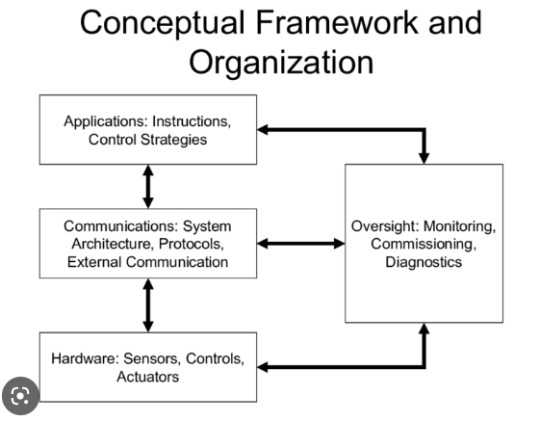#Qualitative Research
Text
Linguistics education and its application in the workplace: An analysis of interviews with linguistics graduates (new publication in Language)
The Superlinguo Linguistics Job Interviews were a chance for me to ask people with a range of linguistics training and a range of different jobs about the links they saw between their education and their work. Asking the same questions each month, I noticed a real diversity in the thoughtful responses from people, but also some common threads.
I teamed up with qualitative researcher Dr Anuja Cabraal to look at what we could learn from the first 50 interviews. We looked at the kind of skills and knowledge people reported using in their jobs, and the advice they had for current students and job seekers. We also connected this to the larger literature on employment for linguistics students, and for humanities/liberal arts students in general. This article will hopefully help those who teach linguistics to make connections to how it is useful in a wide range of careers.
Having been so involved in running these interviews for years, it was great to work with someone who brought a fresh perspective to them. I’m also incredibly grateful to everyone who participated in the series over the years and shared their experience and insights.
I’ve also updated the lingjobs resources slides to include a summary of content from the article, and more resources.
Abstract
This paper provides an overview of post-study employability for students of linguistics. We begin with a review of the literature on employability, education, and skills. We then conduct an analysis of 51 interviews with people who studied linguistics and went on to work in a diverse range of occupations. We provide a summary of the interview participants and then conduct an analysis of the domain-specific and transferable skills reported and advice offered in these interviews. Finally, we look at how linguistics programs can use the existing literature and insights from these interviews to help their students think about careers.
Reference
Gawne, Lauren & Anuja Cabraal. 2023. Linguistics education and its application in the workplace: An analysis of interviews with linguistics graduates. Language, 99(1): e35-e57 doi: 10.1353/lan.2023.0003 [published version - OA after March 2024]
See also
Superlinguo Linguist Job Interviews full list
Linguistic Job Resources slide set (bit.ly/ling-jobs)
Doing your own Linguistics Job Interviews
#linguistics#jobs#careers#publication#new article#research#qualitative research#humanities#social science#liberal arts
47 notes
·
View notes
Text
is there any discourse on here about the QR masturbation paper yet
79 notes
·
View notes
Text


06.03.2023
My first qualitative analysis, went pretty well, I'm in love with the subject already!
#stem major#student#study aesthetic#chemistry#college#stem academia#studyblr#analyticallyminded#qualitative research#studyspiration#study hard#stem aesthetic#online chemist
23 notes
·
View notes
Text
Sociological Theory and the Canon
It's Sociology Sunday! Today we're talking theory.
What is sociological theory?
Sociological theory is a set of interrelated ideas that allow for the (1) systematization of knowledge of the social world (2) the explanation of that world, and (3) predictions about the future of that world, and which are falsifiable through empirical research.
Theory provides a possible answer to questions like, “why did this happen?” or, “why did they do that?” This means theory is speculation, not fact, but unlike “ideas” generally, theory is speculation driven by a more formal, systematic, process, which incorporates the work of previous theorists and research findings.
The Sociological Canon
Some theories are more popular than others. Some theories, while unpopular, are considered “pivotal” to the foundation of sociology. The “sociological canon” helps us identify the “popular” and “pivotal” theories.
The sociological canon is defined as the theories, ideas, and texts that are widely considered as the most important in the field of sociology (Ritzer and Stepnisky 2018)

“I’m not a regular mom theory, I’m a cool mom theory!”
The canonized theories are sort of like the “cool mom” in Mean Girls (oshowing my age here, the original 😘) – others exist, but these are the ones we tend to think of first when we think of “the mom in Mean Girls” (or, in this case, “sociological theory”).
Critics of the canon argue that the canon is not a neutral construction; rather, it is affected by power and the politics of the theory. To some degree, they are right.
The field of sociology has historically privileged theories that have testable hypotheses, known as “positivist” theories, and theories produced by white men faculty. In this, we can see that the canon, and relatedly, the field of sociology, have tended to reflect power structures in society more broadly. Which means that, yes, technically the canon is full of theories created by old white dude philosophers in Europe in the late 1800s to early 1900s. Nowadays, though, most sociologists agree that the canon includes much more than Marx, Weber, and Durkheim.
Meaning the canon is now considered to include theories from other classical theorists writing during the same time as Mark/Weber/Durkheim, like W.E.B. DuBois and Ida B. Wells. The canon has also expanded in the last 40 or so years to include contemporary theories, such as emancipatory, feminist, and queer theories. These expansions were important steps towards accounting for the reality of the field as it presently exists, and to correctly reflect the field’s foundations which expand far beyond whiteness, masculinity, and western imperial culture. Presently, women make up the (quantitative) majority of sociology faculty, and while this women majority was historically white, the number of women, including and especially women of color, in sociology continues to grow, substantially outpacing white men.
Sociological Theory and Empirical Research
Empirical research is rooted in theory.
Sometimes these theories are the driving force behind research, constituting the research question for an empirical study. You begin with the possible answer to the question, the theory, and you investigate to see if it holds up–your results may call into question some or all of the theory’s propositions. This is called “deductive reasoning.”
Theory is not always the starting point of research, though. Sometimes theory is generated from research. This process is called “inductive reasoning.” In this case, you begin with observations, draw conclusions, and from those conclusions, generate new ideas about the social world.
Deductive reasoning is often linked with quantitative research. Quantitative researchers usually have some idea of theory before forming their research question, and some quantitative research is constructed with the goal of testing (falsifying) theoretical propositions. Qualitative research, in contrast, often uses inductive reasoning, beginning with observation and developing theory as part of the study’s conclusions. This is not always the case with qualitative research, though.
One approach to creating contemporary sociological theory assumes the “best” theory is constructed via inductive reasoning, and thus, begins with observation, absent of pre-existing ideas. This is known as a “grounded theory” approach, because it produces theory that is “grounded” in observation of tangible facts instead of based upon pre-existing abstract ideas. The sociologists Barney Glaser and Anselm Strauss are often credited with popularizing the “grounded theory” approach, which they outlined in their 1967 book “The discovery of grounded theory: Strategies for Qualitative Research”.
Other approaches to qualitative research, like content analysis, may start with theory or observations.
Summary:
instagram
Watch full lecture:
#sociology#science#social science#higher education#professor#research#empirical research#sociology sunday#sociological theory#theory#deductive reasoning#inductive reasoning#qualitative research#quantitative research#grounded theory#marx#durkheim#weber#dubois#classical#contemporary#teaching#lesson#studyblr#college#university#Instagram
4 notes
·
View notes
Text

Class starts next week and I am getting ready to Ace it!
#doctoral student#educational psychology#blackphdstudent#studyblr#academic research#black college girl#student#educational research#qualitative research#research design#developmental psychology
14 notes
·
View notes
Text


dusty keyboards, sunny landscapes, mind and desk - a mess 💫
#mine#mess#maxqda#qualitative research#Idk what’s going on#geography#study#desk setup#desk#messy desk#bachelor thesis
17 notes
·
View notes
Text
Answering Tumblr polls makes me feel like I'm taking part in important sociological research.
3 notes
·
View notes
Text
just conducted a successful aging assessment on an old person for my psychology practical. god, do people have experiences.
#mental health#psychology student#mental health awareness#mental health support#mental health reminders#coping#reminders#therapy#positivity#kindness#wellness#academia#psychology major#qualitative research#quantitative research#research
5 notes
·
View notes
Text
Precision Insights: Expert Quantitative Market Research Services
Our Quantitative Market Research Services help you quickly gather insights from our panellists and understand the changing consumer behaviour. Using our comprehensive services, we find the answers to the most of your questions! Follow this link to know more https://insighttellers.com/services/quantitative-research-market

#Quantitative Market Research Services#Qualitative Research#Translation#Survey Programming#Data Collection & Analysis#Secondary Research#Panel Aggregation#Contracted Work
2 notes
·
View notes
Text

How to make theoretical framework for qualitative research?
A theoretical framework is a set of concepts and ideas that help to guide and inform your research. It helps to establish the context in which your study will be conducted and provides a structure for organizing and interpreting your findings. In qualitative research, the theoretical framework is often based on the researcher's own theoretical perspective or on the theories and concepts that emerge from the data.
To develop a theoretical framework for your qualitative research, you can follow these steps:
Review the literature: Begin by reading and reviewing the existing literature on your research topic. This will help you to gain an understanding of the current state of knowledge and identify any gaps in the literature that your research can address.
Identify key concepts and theories: As you review the literature, look for key concepts and theories that are relevant to your research topic. Consider how these concepts and theories might be related to your research question or hypotheses.
Develop a conceptual model: A conceptual model is a visual representation of the relationships between the concepts and theories that you have identified. You can use a diagram or a mind map to help you to organize your thoughts and create a visual representation of your conceptual model.
Write your theoretical framework: Once you have identified the key concepts and theories and developed a conceptual model, you can use this information to write your theoretical framework. This should be a clear and concise description of the concepts and theories that you will be using to guide your research.
Test and revise your theoretical framework: As you conduct your research, you may need to revise your theoretical framework based on the data you collect. Be open to testing and revising your framework as needed to ensure that it accurately reflects the phenomena you are studying.
3 notes
·
View notes
Text
How to write a research proposal?
How to write a research proposal?
Writing the proposal of a research work in the present era is a challenging task due to the constantly evolving trends in the qualitative research design and the need to incorporate medical advances into the methodology. The proposal is a detailed plan or ‘blueprint’ for the intended study, and once it is completed, the research project should flow smoothly. Even today, many of the proposals at…

View On WordPress
2 notes
·
View notes
Text
One of my professors told in her lecture about how she had continued to ask follow-up questions, kinda kept pushing, when the interviewee hadn't given the kind of answer she expected. She let her preconceptions lead her and didn’t listen to the interviewee (which is something you should never do as a researcher). On the lecture she openly admitted this mistake, reflected on the reasons for it and presented ways to avoid doing so. I think it was great that she shared this, because I'm sure many novice researchers are afraid of making mistakes or feel ashamed if they do. In this way, my professor showed that these things happen even to more experienced researchers and that it's not the end of the world. You just have to learn from your mistake and avoid doing it in the future.
#qualitative research#research#research methods#interview#professor#women in science#university#education#studying#respect#relatable#talk about things#this is important
1 note
·
View note
Text
Leveraging the Power of Qualitative Data in Primary Market Research
Introduction
In the realm of market research, data is king. However, while quantitative data often takes the spotlight, qualitative data is equally indispensable. Qualitative research methods offer valuable insights into consumers’ thoughts, feelings, and behaviors, providing depth and context to quantitative findings. In this comprehensive guide, we’ll explore the significance of qualitative data in primary market research and delve into various qualitative research methods that can enrich your understanding of target markets and consumer behavior.
Understanding Qualitative Data
Qualitative data provides rich, nuanced information that quantitative data alone cannot capture. It focuses on exploring attitudes, opinions, motivations, and perceptions through non-numeric data such as words, images, and observations. Unlike quantitative data, which aims for statistical generalization, qualitative data aims for in-depth understanding and often involves smaller sample sizes.
Importance of Qualitative Data in Primary Market Research
Uncovering Consumer Insights: Qualitative research methods help uncover underlying motivations, preferences, and pain points that influence consumer behavior. These insights are invaluable for product development, marketing strategies, and brand positioning.
Exploring Complex Phenomena: Some aspects of consumer behavior are complex and nuanced, requiring qualitative methods to explore thoroughly. For example, understanding why consumers prefer one brand over another involves delving into emotions, experiences, and perceptions.
Generating Hypotheses: Qualitative research can generate hypotheses that can be further tested with quantitative methods. It provides a foundation for designing more focused and effective quantitative studies.
Contextualizing Quantitative Data: Quantitative data provides the ‘what’, while qualitative data provides the ‘why’ behind the numbers. Integrating both types of data offers a holistic understanding of consumer behavior and market dynamics.
Types of Qualitative Research Methods
In-depth Interviews: In-depth interviews involve one-on-one conversations between the researcher and the participant. They allow for probing questions and detailed exploration of individual experiences, opinions, and perceptions. In market research, these interviews are often conducted face-to-face, over the phone, or via video conferencing.
Focus Groups: Focus groups bring together a small group of participants (usually 6-10) to discuss specific topics under the guidance of a moderator. They encourage interaction and dialogue among participants, providing insights into shared attitudes, opinions, and group dynamics.
Observational Research: Observational research involves observing participants in their natural environment without direct interaction. This method is particularly useful for understanding behavior in real-life settings, such as retail stores or online platforms.
Ethnographic Studies: Ethnography involves immersing researchers in the culture or context of the target population to observe behavior, rituals, and social interactions firsthand. It provides deep insights into consumer lifestyles, values, and cultural influences.
Content Analysis: Content analysis involves systematically analyzing textual, visual, or audiovisual content to identify themes, patterns, and trends. It is commonly used to analyze social media conversations, customer reviews, and other forms of user-generated content.
Case Studies: Case studies involve in-depth examination of a particular individual, group, or organization. They provide detailed insights into specific scenarios or phenomena and can be particularly useful for understanding complex or unique situations.
Best Practices for Conducting Qualitative Research
Define Clear Objectives: Clearly define the research objectives and the information you seek to gather through qualitative methods.
Select the Right Method: Choose the most appropriate qualitative method based on your research objectives, target audience, and resources.
Develop Discussion Guides: For interviews and focus groups, develop discussion guides to ensure consistency and cover all relevant topics.
Ensure Participant Comfort: Create a comfortable and non-threatening environment for participants to encourage open and honest responses.
Analyze Data Thoroughly: Use systematic approaches to analyze qualitative data, such as thematic analysis or coding, to identify patterns and insights.
Triangulate with Quantitative Data: Combine qualitative findings with quantitative data to validate findings and provide a comprehensive understanding of the research topic.
Conclusion
Qualitative research methods play a crucial role in primary market research, offering deeper insights into consumer behavior, preferences, and motivations. By leveraging the power of qualitative data alongside quantitative data, businesses can make more informed decisions, develop targeted marketing strategies, and create products and services that resonate with their target audience. Understanding the various qualitative research methods and implementing best practices can unlock valuable insights that drive business success in today’s competitive market landscape.
FAQs
1. What is qualitative data in market research?
Qualitative data in market research refers to non-numeric information that explores attitudes, opinions, motivations, and perceptions of consumers. It provides depth and context to quantitative findings and helps understand the ‘why’ behind consumer behavior.
2. Why is qualitative data important in primary market research?
Qualitative data is important because it uncovers consumer insights, explores complex phenomena, generates hypotheses, and contextualizes quantitative data. It provides a deeper understanding of consumer behavior and market dynamics, leading to more informed decision-making.
3. What are some common types of qualitative research methods?
Common types of qualitative research methods include:
In-depth Interviews
Focus Groups
Observational Research
Ethnographic Studies
Content Analysis
Case Studies
4. How do I choose the right qualitative research method for my study?
When choosing a qualitative research method, consider your research objectives, target audience, and resources available. Select the method that best aligns with your goals and allows for in-depth exploration of the topic.
5. How can I ensure the success of my qualitative research study?
To ensure the success of your qualitative research study, follow these best practices:
Define clear objectives
Select the right method
Develop discussion guides
Ensure participant comfort
Analyze data thoroughly
Triangulate with quantitative data
6. How can qualitative and quantitative data be integrated in market research?
Qualitative and quantitative data can be integrated by combining insights from both types of data. Qualitative data provides depth and context, while quantitative data offers statistical validation. Triangulating the two types of data leads to a comprehensive understanding of the research topic.
7. What are the benefits of conducting ethnographic studies in market research?
Ethnographic studies immerse researchers in the culture or context of the target population, providing deep insights into consumer lifestyles, values, and cultural influences. This method offers a holistic understanding of consumer behavior in real-life settings.
8. Can qualitative research methods be used to study consumer behavior online?
Yes, qualitative research methods can be adapted for studying consumer behavior online. Methods such as online focus groups, social media analysis, and content analysis of user-generated content can provide valuable insights into online consumer behavior and preferences.
#primary market research#qualitative research#qualitative research methods#qualitative data#qualitative data in primary research
0 notes
Text

Research research research!
#educational psychology#doctoral student#studyblr#student#academic research#blackphdstudent#black college girl#educational research#qualitative research
27 notes
·
View notes
Text
New year, good time to strengthen your retirement income strategy

There’s something about the start of a new year that gives us the impetus to make a change. Often, the holiday downtime triggers a new-found resolve to “get important affairs in order” – thus a perfect time for super funds to activate member engagement for 2024.
Effective engagement can only be built on a sound knowledge base. This takes us to the critical question: “How well do you know your members?”
Last year, a joint APRA and ASIC review of the approach by Super funds to new obligations under the retirement income covenant found fundamental gaps that need to be filled.
The review identified Understanding Members’ Needs as a key gap in designing a retirement income strategy that is appropriate for members. It found that 12 out of 15 assessed Registrable Superannuation Entity (RSE) licensees recognised they had gaps in critical member data, both around members’ financial positions and income needs in retirement. Yet only four had developed robust plans to address these data gaps to enhance their strategy.
“Closing that knowledge gap, from a customer experience perspective, is easier than you may think,” said CSBA CX Director of Finance, Sam Monteath. “But it does require strategic planning, collaboration, and commitment.”
What to do:
Audit your data
Trustees hold a massive amount of data, possibly stored within departments and not visible across the organisation. Get clarity on what data you hold and identify the gaps that impede you from truly understanding your members. Engage expert assistance if needed.
Share existing knowledge
This is an opportunity to remove information silos that prevent data from being shared across the organisation. Knowledge is power, and teams are empowered when there is collaboration and possibility to leverage data to inform strategy.
Address the data gaps
Draw on a range of data sources, both internal and external, to deepen member understanding. Use new insights to broaden membership sub-classes, beyond age and superannuation balance, and develop needs-based cohorts.
Collecting segment-based insights does not have to be expensive. A qualitative methodology is a cost-effective way to obtain deep knowledge that can be applied across the member base. We see strong participation across cohorts, even those members who are already retired, as they are often unprepared, unaware of their options, and seek guidance.
Design best-practice research methodology
Bespoke retirement research design can explore more, extract more, and identify more pertinent insights that can have far-reaching outcomes – for branding, marketing, and engagement.
This is powerful intel for trustees, enabling them to become part of the consideration set when members are seeking guidance and advice. By developing relevant, specific tools and materials, trustees have an opportunity to support members, preventing their reliance on external advice.
Our approach is fully compliant with research and privacy standards. Participants are clear on why information is being collected, how it will be stored, and that all information remains confidential.
Where funds can make a difference
Monteath: “We know that members look to their funds for guidance because this is an area in which many members have little knowledge or understanding.”
“We also know that those in pre-retirement struggle to balance current financial priorities with the long-term planning for the future. They know they want to maintain their lifestyle in retirement, but don’t understand what this means in terms of numbers or have a plan to get there.”
Super funds have a tremendous opportunity and responsibility to empower and educate members around their financial needs for retirement. However, any meaningful guidance must start with gaining deep knowledge of their unique circumstances.
How CSBA research specialists can help
As CX experts, CSBA offers bespoke solutions to meet our clients where they’re at. Our qualitative and quantitative research will help develop a solid, deep understanding of members’ needs and nuances at a granular cohort level. This enables trustees to apply different strategies and embrace the true intent of the retirement income covenant.
Successful strategic planning starts with deep member insights.
To find out more, email [email protected]
0 notes
Text
Writing up a Qualitative PhD Course
This week I started a 4-day PhD training program called “Writing up a Qualitative PhD Course”. These are night classes, which, at the time of registering for this program was ideal for me since I was working full-time. However, as it turned out, I’m currently not on any work deployments. Nevertheless, I am very much enjoying this course and it's only day 2. Professional Silverman has some radical views, but that good thing! - Looking forward to tonight's class!
0 notes